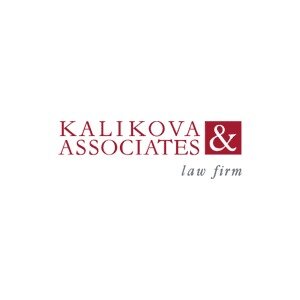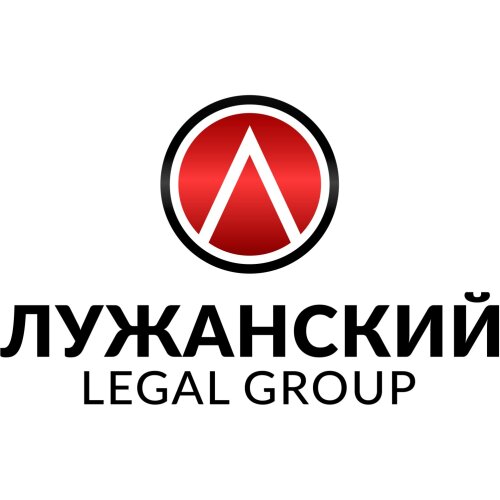Best Restructuring & Insolvency Lawyers in Kyrgyzstan
Share your needs with us, get contacted by law firms.
Free. Takes 2 min.
Or refine your search by selecting a city:
List of the best lawyers in Kyrgyzstan
About Restructuring & Insolvency Law in Kyrgyzstan
Restructuring and insolvency law in Kyrgyzstan focuses on managing financially distressed individuals and companies, either through restructuring debts to restore solvency or by organizing an orderly liquidation when debts cannot be repaid. The primary goal of these laws is to protect creditors' rights, support fair treatment of debtors, and ensure that insolvency proceedings are conducted in a transparent manner. The legal framework provides mechanisms for reorganizing businesses to avoid bankruptcy or for conducting bankruptcy processes when reorganization is not possible. Both individuals and legal entities can access restructuring or insolvency processes under Kyrgyz law.
Why You May Need a Lawyer
Navigating restructuring and insolvency can be complex and may have far-reaching consequences for your financial future. Here are some common situations when hiring a legal expert is highly advised:
- You or your business are facing mounting debts that cannot be managed through regular payment schedules.
- Creditors are pursuing legal action or have initiated bankruptcy proceedings against you or your company.
- You wish to restructure your debts and negotiate with creditors to avoid insolvency.
- You are a creditor seeking to recover debts from an insolvent individual or entity.
- You need to understand your legal obligations and risks during insolvency, including director's liabilities and asset protection.
- Your business requires guidance on compliance with Kyrgyz insolvency laws to minimize legal repercussions.
- You need representation in court for restructuring or insolvency proceedings.
Local Laws Overview
Restructuring and insolvency in Kyrgyzstan are regulated mainly under the Law "On Bankruptcy (Insolvency)" and associated acts. Here are several notable features of the local legal environment:
- Bankruptcy triggers - A person or entity is generally considered insolvent if they are unable to meet financial obligations as they become due.
- Types of proceedings - Kyrgyz legislation provides for rehabilitation (restructuring), external administration, and bankruptcy (liquidation) procedures.
- Role of the Arbitrazh (Commercial) Court - All insolvency applications are processed through the commercial court system.
- Appointment of Trustees - The court may appoint external administrators or trustees to manage assets and operations during insolvency.
- Creditor rights - Creditors have the right to participate in proceedings, form creditor committees, and vote on proposed reorganization plans.
- Moratorium on creditor actions - Upon opening of insolvency proceedings, enforcement actions by creditors are usually suspended (stay of proceedings).
- Preference and avoidance actions - Transactions made to the detriment of creditors in the lead-up to insolvency may be reversed.
- Individual versus corporate insolvency - Both individuals and legal entities (companies) are subject to insolvency rules, but processes and consequences may differ.
Frequently Asked Questions
What is the difference between restructuring and bankruptcy in Kyrgyzstan?
Restructuring (rehabilitation) is a process to help a debtor recover financial stability, often by negotiating new terms with creditors. Bankruptcy, in contrast, is the formal legal process of declaring insolvency, liquidating the debtor's assets, and distributing the proceeds to creditors.
Who can initiate insolvency proceedings in Kyrgyzstan?
Insolvency proceedings can be initiated by the debtor, creditors, or authorized government bodies when the debtor is unable to fulfill financial obligations.
What happens to ongoing lawsuits and enforcement actions after insolvency proceedings start?
A moratorium (stay) is typically imposed, halting existing lawsuits and enforcement actions against the debtor while the insolvency process is ongoing.
Can a business continue operating after insolvency proceedings begin?
Depending on the type of proceeding, a business may continue operations under the supervision of an administrator or trustee. For liquidation, operations often cease or are limited.
Are directors of insolvent companies personally liable for debts?
Generally, directors are not personally liable, but if they engaged in wrongful or fraudulent conduct, personal liability may apply under certain circumstances.
What is a creditor committee and what is its role?
A creditor committee is a group formed from the largest creditors. It represents creditors' interests during proceedings and participates in approving key decisions, such as reorganization plans or asset sales.
How is priority established for paying creditors in bankruptcy?
Creditors are paid in a legally established order of priority, usually starting with secured creditors, then administrative expenses, employees, and finally, unsecured creditors.
Is it possible to reverse transactions made before insolvency?
Yes, certain transactions made before insolvency, especially those deemed to favor some creditors or reduce the bankruptcy estate, can be challenged and reversed by the court.
Can individuals in Kyrgyzstan declare bankruptcy or only businesses?
Both individuals and companies may be subject to bankruptcy proceedings under Kyrgyz law, though the procedures and consequences may be different.
How long do insolvency proceedings usually last in Kyrgyzstan?
The duration varies based on complexity, type of proceeding, and cooperation from all parties. It can take several months to several years to complete a case.
Additional Resources
If you need further support or want to learn more, consider the following organizations and resources in Kyrgyzstan:
- The Ministry of Justice of the Kyrgyz Republic - Supervises legal regulations and court procedures.
- The Arbitrazh (Commercial) Courts - Handle all insolvency and restructuring filings.
- State Tax Service of the Kyrgyz Republic - Involved in creditor claims and monitoring compliance during insolvency.
- Union of Bankruptcy Trustees of Kyrgyzstan - Professional association supporting trustees and insolvency administrators.
- Licensed law firms specializing in restructuring and insolvency law.
- Public legal awareness resources and consultation centers.
Next Steps
If you believe that you or your business are facing financial distress or may need restructuring or insolvency assistance, it is crucial to:
- Consult with a qualified legal professional who specializes in insolvency and restructuring in Kyrgyzstan as early as possible.
- Gather and organize all relevant financial and legal documents, including debts, assets, contracts, and correspondence with creditors.
- Discuss your options, including possible restructuring, negotiated settlements, or formal bankruptcy proceedings.
- Request guidance from government agencies or professional associations listed above for further information or referrals.
- Act promptly - quick action can improve your options and help protect your interests.
Taking these steps with the support of experienced legal counsel can help ensure that your rights and interests are protected throughout any restructuring or insolvency process in Kyrgyzstan.
Lawzana helps you find the best lawyers and law firms in Kyrgyzstan through a curated and pre-screened list of qualified legal professionals. Our platform offers rankings and detailed profiles of attorneys and law firms, allowing you to compare based on practice areas, including Restructuring & Insolvency, experience, and client feedback.
Each profile includes a description of the firm's areas of practice, client reviews, team members and partners, year of establishment, spoken languages, office locations, contact information, social media presence, and any published articles or resources. Most firms on our platform speak English and are experienced in both local and international legal matters.
Get a quote from top-rated law firms in Kyrgyzstan — quickly, securely, and without unnecessary hassle.
Disclaimer:
The information provided on this page is for general informational purposes only and does not constitute legal advice. While we strive to ensure the accuracy and relevance of the content, legal information may change over time, and interpretations of the law can vary. You should always consult with a qualified legal professional for advice specific to your situation.
We disclaim all liability for actions taken or not taken based on the content of this page. If you believe any information is incorrect or outdated, please contact us, and we will review and update it where appropriate.
Browse restructuring & insolvency law firms by city in Kyrgyzstan
Refine your search by selecting a city.











